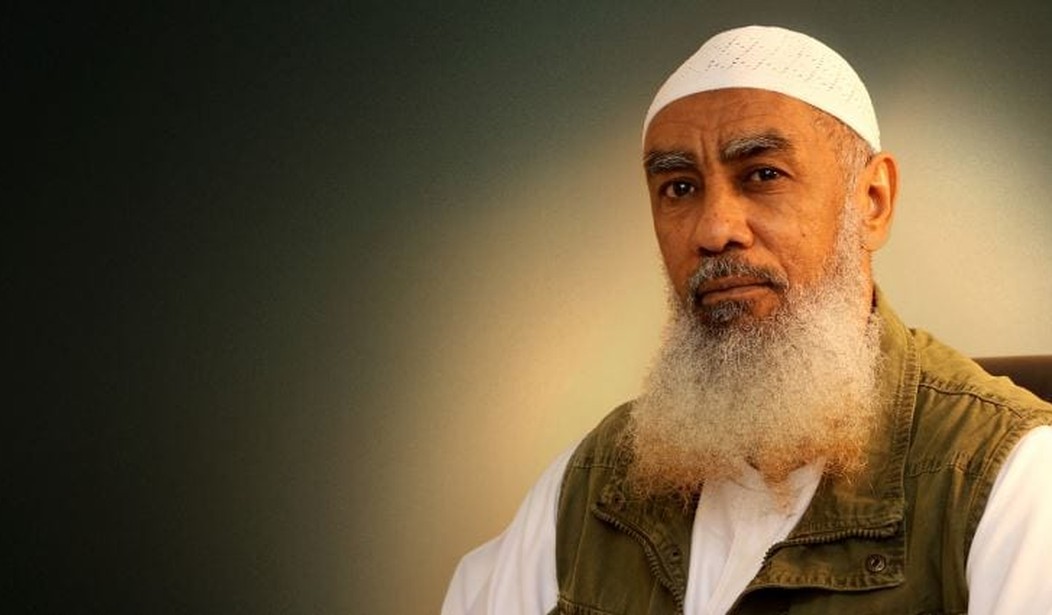A former Guantanamo detainee opened up in the new issue of al-Qaeda in the Arabian Peninsula’s Inspire magazine about the planning behind the 9/11 attacks and life with Osama bin Laden.
Al-Qaeda paymaster Ibrahim al Qosi, 55, was captured in Afghanistan in December 2001 and released to the Sudanese government by the Obama administration in July 2012.
Al Qosi, now going by Sheikh Khubaib al Sudani, joined AQAP in 2014 and appeared last year in a video encouraging lone jihad.
In the extensive Inspire interview, Khubaib said bin Laden “and the scholars of jihad around him thought seriously about targeting and confronting America when its armies set foot in the land of the two holy mosques, in 1991.”
“This was after the rulers of the house of Saud called upon the Americans to come to their aid in liberating Kuwait,” he said, adding that he considered the first act of war against America to be the Black Hawk incident in Somalia in 1993. “…We cannot establish an Islamic state until total meltdown of America, the head of the snake – if it falls then its tail, and the regimes it backs, will fall too. America is standing like a brick wall in front of us in fighting the Jews who occupy Palestine.”
Khubaib said the 9/11 hijackers were selected “under the basis of their request to conduct martyrdom operations.”
“In addition to the general preparations and training by the executor, such as militarily experience, physical fitness and patience in the training camp specially customized for that purpose. In addition to the spiritual and religious preparation for the operation. Other considerations and qualities included the executor’s accessibility and security cover to enter the place or country of operation, plus many other unique qualities they possessed,” he continued.
“As for the executors of the 9/11 attacks, they were personally supervised and handpicked by Sheikh Usama. A great number of them were from the Arabian Peninsula. The Sheikh wanted to send a message to the Americans and whoever supports them; to realize that this ummah [Muslim people] is like a single body, if a part of it is in pain then the whole Ummah feels the pain.”
Fifteen of the 19 hijackers were from Saudi Arabia, with United Arab Emirates, Egypt and Lebanon citizens making up the balance.
“This was after the minister of defense addressed the media saying that he had learned one lesson from the Riyadh bombing and the news is that he will not withdraw from the coward Mujahideen,” Khubaib said. “The Sheikh’s message was that these youth did not want to indulge in talk and dialogue with you (Americans), it was as if they all pronounced and say, ‘there will be no blaming between us and you, except the stabbing of your kidneys and slaying of your necks.'”
The Sudanese terrorist fondly remembered the 9/11 hijackers as “generous, brave, unselfish, simple-hearted, good-minded and humble.”
“It was as if before they left, they could smell the fragrance of paradise. You witnessed change in their manner and had confidence that could move mountains as they headed toward their destination. No one can doubt that their examples changed the cause of history,” he continued.
Mohammed Atta, who flew American Airlines Flight 11 into the North Tower of the World Trade Center, was “mostly silent and likeable from the first sight,” he added.
Khubaib called bin Laden “shy, generous, brave, honest, a hard worker” who “sacrificed all that was dear to him in order to give victory over our religion.”
“The whole world, led by America together with those who are from our own people, from of our own blood, those who claim to practice the same religion as us and talk the same language as us, rush to fight the Mujahideen under the pretext of countering terrorism,” said the former Gitmo detainee. “…My final advice to the Lone Mujahid is to increase supplication to Allah to grant you steadfastness, and success in planning and managing.”









Join the conversation as a VIP Member